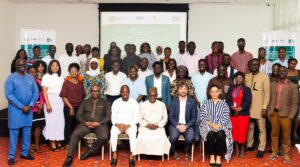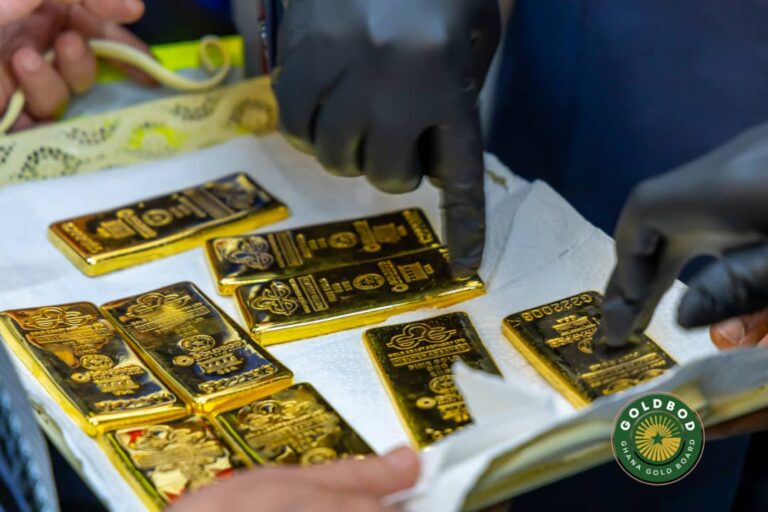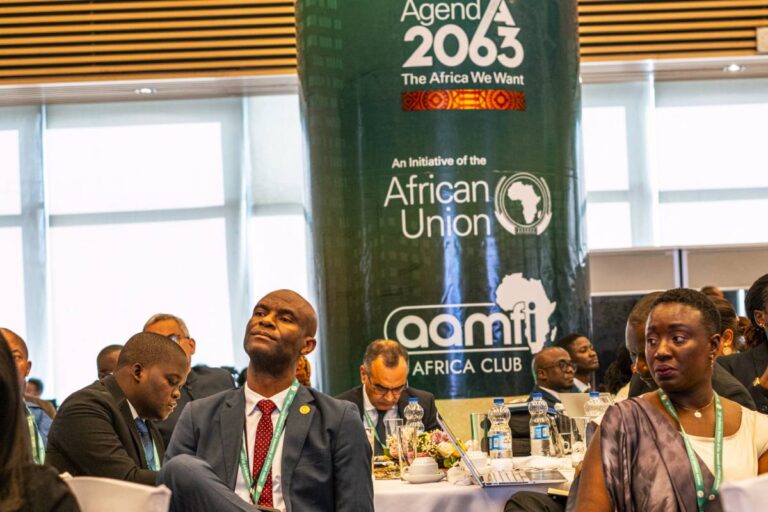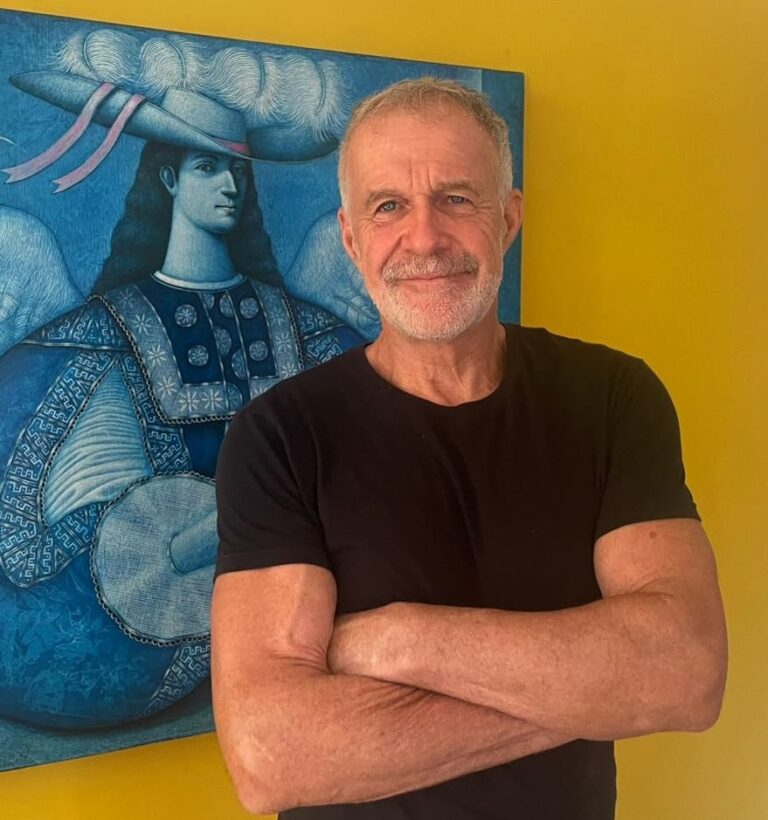The Economic Community of West African States (ECOWAS) has stepped up efforts to combat spread of misinformation and disinformation in the sub-region, by using media training as a tool to safeguard truth and strengthen democracy.
In partnership with the German Development Agency (GIZ) and the Media Foundation for West Africa (MFWA), ECOWAS convened a two-day capacity-building program for journalists in Accra, Ghana, focused on information integrity and the critical role of the media in protecting peace.
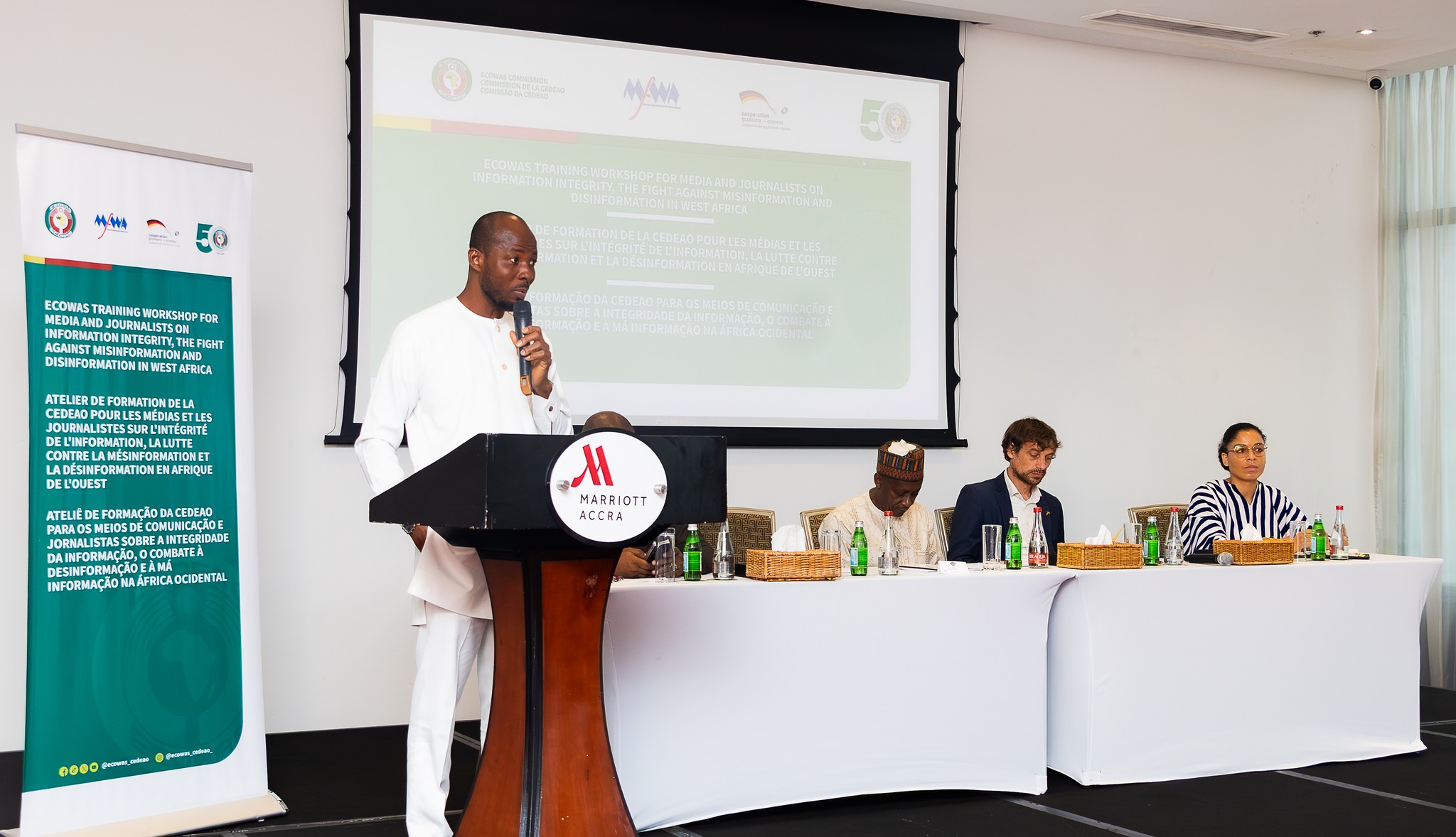
The training, held at the Marriott Hotel, brought together journalists from across Ghana to engage with the rising threats of manipulated narratives, false reports, and hate speech that are increasingly shaping public opinion and destabilising communities.
Journalists were guided through intensive sessions designed to connect information integrity, with wider regional goals for peace, democracy, and security.
ECOWAS Resident Representative to Ghana, Ambassador Mohammed Lawan, stressed that the gathering was not only, timely but necessary in the face of growing attempts to use misinformation to weaken democratic institutions and inflame conflict.
He described disinformation as one of the fastest-rising challenges confronting the region today.
“The ECOWAS Commission recognises that disinformation is a major driver of conflict and insecurity in our region. It erodes trust in governance, distorts public opinion, and creates fertile ground for violence and extremism. We believe that strengthening the media to uphold truth is one of the surest ways of protecting democracy and ensuring peace in West Africa,” Ambassador Lawan said.
He explained that the training was a deliberate step by ECOWAS, in collaboration with partners, to place journalists at the forefront of the response.
According to him, the Commission views the media as a trusted partner in delivering its broader peace and security agenda. “This training is a tool for journalists to sharpen their skills, not only to counter harmful narratives but also to serve as defenders of democracy,” he added.
Ambassador Lawan further encouraged participants to take their lessons beyond the walls of the training venue, reminding them that their reporting choices directly influence how communities understand and react to issues of governance, conflict, and human rights.
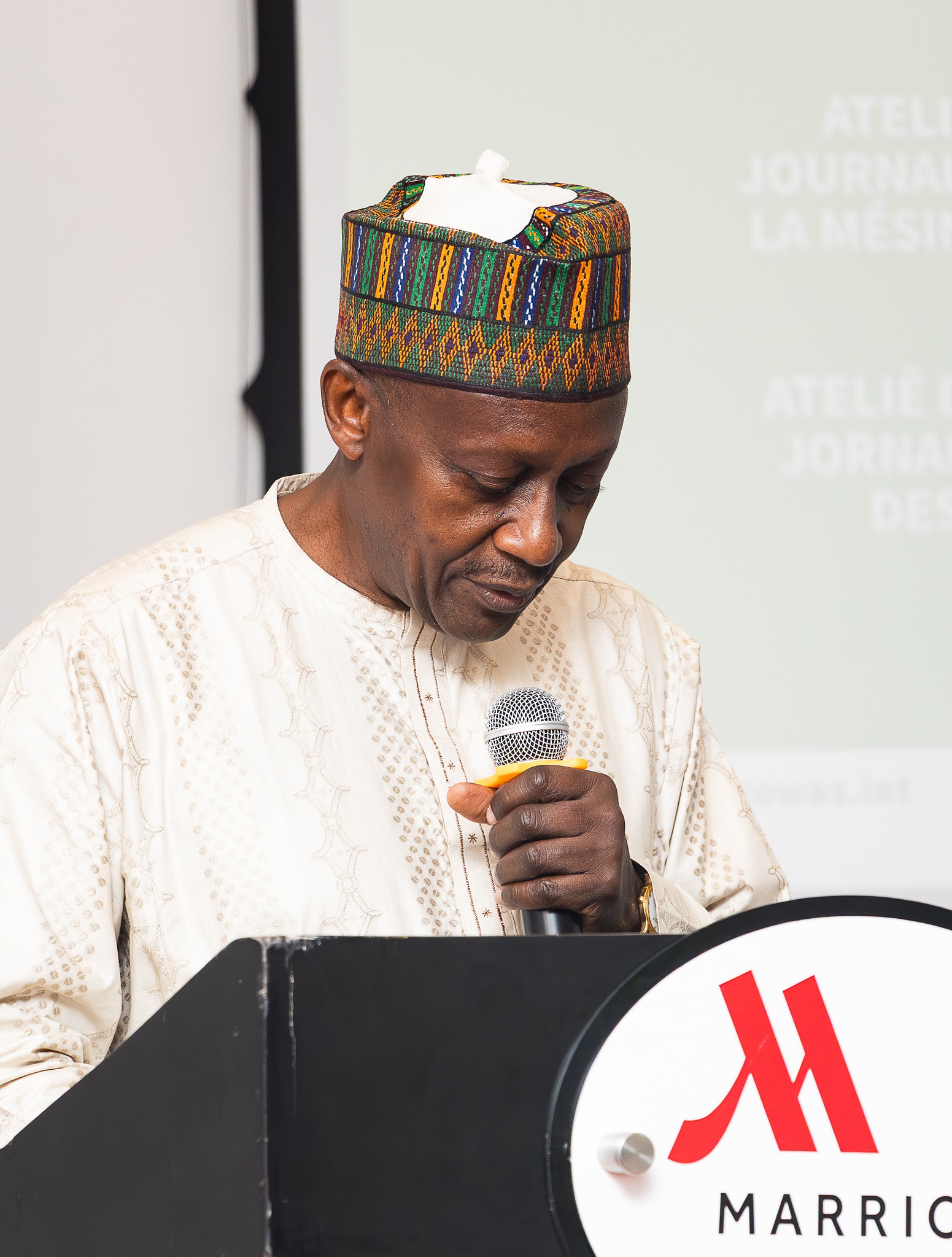
Adding his voice, Daniel Max Boehme, Head of Cooperation at the German Embassy in Ghana, stressed the urgency of the initiative by drawing attention to the dual nature of the media. He described the media as both a vital pillar of democracy and a space increasingly vulnerable to manipulation.
“Here in Ghana, and across West Africa, we know the power of the media. It shapes public debate, gives citizens a voice, and holds leaders accountable. Yet we also know how quickly misinformation, disinformation, manipulated truths, and even hate speech can spread, threatening peace, eroding trust, and dividing our communities,” Boehme said.
He explained that the training was designed to provide participants with practical skills such as fact-checking and media information literacy to respond to the threats of falsehood.
He added that the exercise was not just about defending truth but also about safeguarding public discourse in support of the ECOWAS Vision 2050, which aims to create a peaceful and prosperous region with strong institutions and shared values.
On behalf of the German Federal Ministry for Economic Cooperation and Development, Boehme reaffirmed Germany’s continued partnership with ECOWAS and the media sector in building societies that are peaceful and inclusive.
“I encourage you to carry the insights from this training beyond these two days into your newsrooms, your reporting, and your communities. Together, we can ensure that truth travels further than lies,” he told participants.
Over the course of two days, participants were introduced to different approaches that connect media practice to conflict prevention, human rights, and peacebuilding.
Key areas explored was the link between information disorder and conflict, with facilitators showing how disinformation and anti-democratic narratives have fueled violent extremism, terrorism, and polarization in West Africa.
The training also focused on human rights reporting, where journalists were guided through international, regional, and national frameworks that govern human rights protection.
Practical sessions examined how journalists can investigate violations and abuses, and the importance of presenting such findings accurately and ethically.
Another significant component was peace journalism and conflict-sensitive reporting. Trainers encouraged participants to consider how the framing of stories can either promote calm and understanding or escalate tensions.
Journalists were urged to embrace reporting approaches that support peacebuilding without compromising on accuracy or fairness.
The program included hands-on exercises in fact-checking and media literacy to prepare journalists for the challenges of a fast-paced digital environment where false information often spreads faster than verified news.
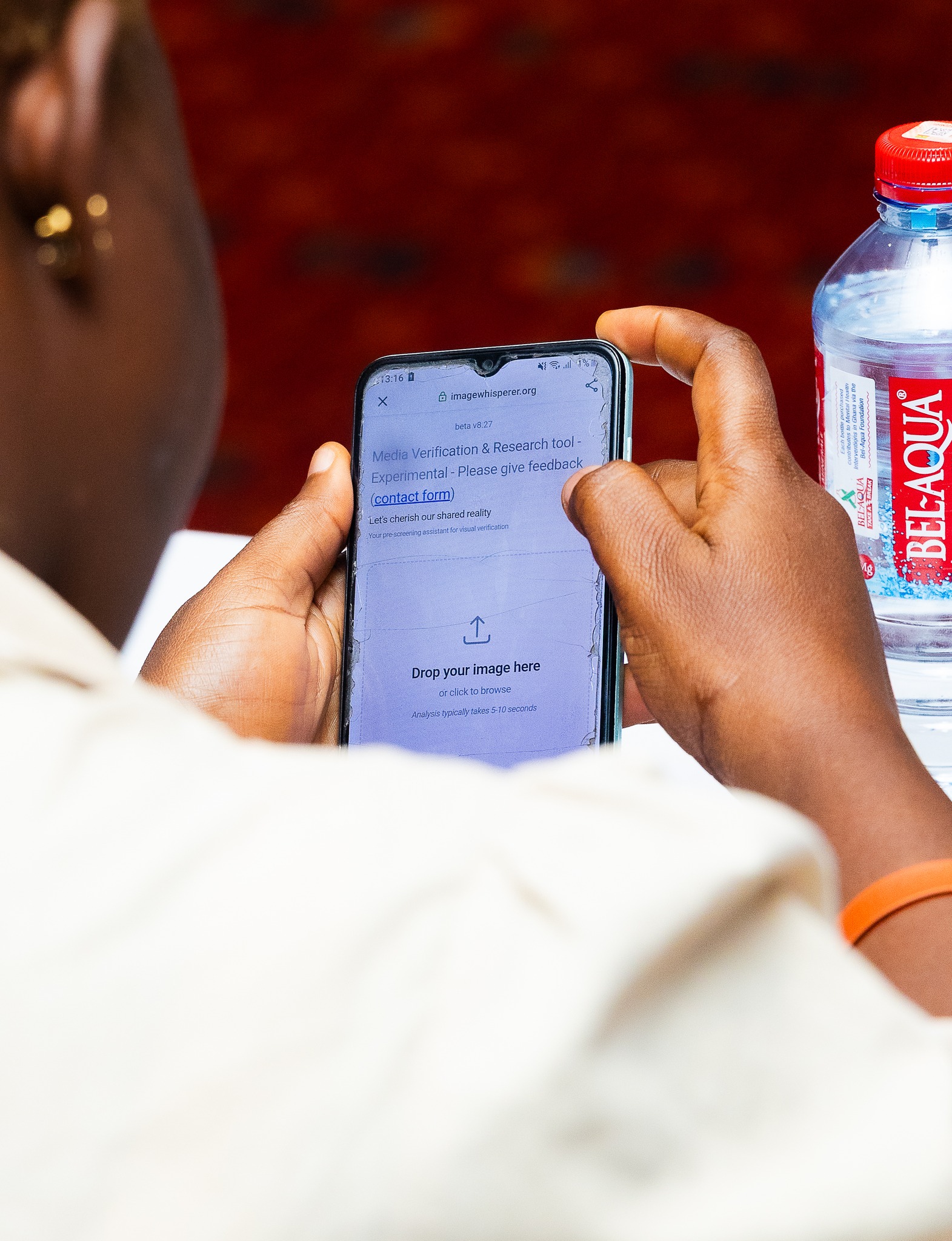
At the close of the training, participants were presented with certificates as a mark of their successful completion of the program. Organizers underscored that the event was not simply about the two days of learning but part of a long-term effort to strengthen the media’s resilience against disinformation.
By equipping journalists with knowledge and practical tools, ECOWAS and its partners aim to extend the impact from individual reporters to newsrooms and, ultimately, to the wider public across the region.
The Media Foundation for West Africa, which partnered in implementing the training, also highlighted the role of credible journalism in preventing violence and sustaining democratic development.
The director for Media for Peace and Sustainable Development, at the Media Foundation for West Africa, Dr. Kojo Impraim, expressed worry over how the influx of Artificial Intelligence (AI) is compounding the spread of false information.
He bemoaned the inability of the media to do enough to support the government in curbing the menace.
The decision by ECOWAS to directly confront the spread of misinformation reflects a broader recognition of the threat it poses to stability in West Africa.
From elections to security crises, false information has repeatedly played a role in shaping public narratives and influencing outcomes in ways that weaken trust and escalate tensions.
By positioning journalists as frontline actors, the Commission hopes to strengthen public resilience and ensure that citizens continue to have access to accurate and reliable information.
